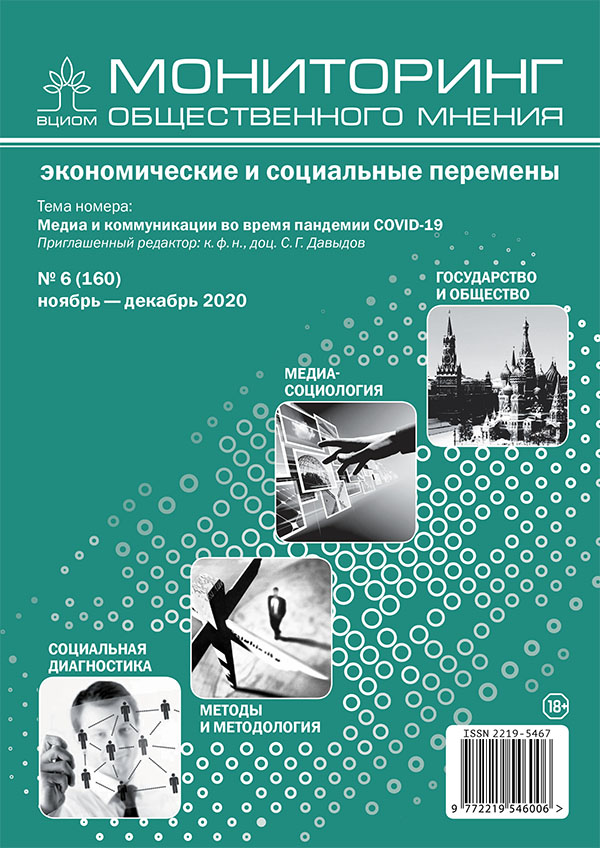Sociology Beyond Reality: Posthumanism and Biopolitics in the ‘Westworld’ Television Series
DOI:
https://doi.org/10.14515/monitoring.2020.6.1747Keywords:
posthumanism, biopolitics, reality, hyperreality, artificial intelligenceAbstract
Over the recent years, the number of television series depicting artificial intelligence and its impact on reality (‘Almost Human’, ‘Humans’, ‘Black Mirror’, ‘Better Than us’, Project 'Anna Nikolaevna' ) has considerably grown. ‘Westworld’ has been a focal point of posthumanist and biopolitical discourse. TV series of that kind play an important role in the representation of reality and construction of future narratives. The study aims to use TV series as a key to understanding the basic trends shaping a new sociality. The authors embark on intellectual experiment and hermeneutic approach being vital to interpreting those trends. Content analysis of the Westworld reviews published by the users on Kinopoisk website (a total of 147 reviews) complements the study. Only those reviews reflecting the spectators’ attitudes towards the idea behind Westworld were taken into account. The vision of artificial sociality can be used as a specific simulator that people need when they build a normative framework for human-robot coexistance. Creating a code of ethics in interactions between humans and AI is an integral part of this process. If the AI subjects gain consciousness (similar to the Westworld anthropomorphic robots), their autonomous will is bound to get people’s recognition. If they represent autonomous intelligent systems deprived of any will but possessing certain skills (such as self-learning), there is no question of AI normative recognition. However, there is still a need to find the right strategy towards such subjects: extreme cruelty of the “real human” in Westworld is illustrative of the damage caused by an individual to those who surround him/her (including those who are considered as unconscious) and ultimately to the individual himself/herself. A similar problem often arises in the context of human-animal relationships. And finally, if AI is perceived as strictly instrumental, there is no need to draw up any ethical guidelines. To solve the AI-related moral dilemmas the skill of thinking ahead would be useful, with the culture of TV series being a major factor shaping this skill.
Acknowledgments. The article is supported by the Russian Foundation for Basic Research (RFBR) (project no. 19-011-00082).
Downloads
Published
How to Cite
Issue
Section
License
Copyright (c) 2020 Monitoring of Public Opinion: Economic and Social Changes Journal (Public Opinion Monitoring) ISSN 2219-5467

This work is licensed under a Creative Commons Attribution-NonCommercial-ShareAlike 4.0 International License.






